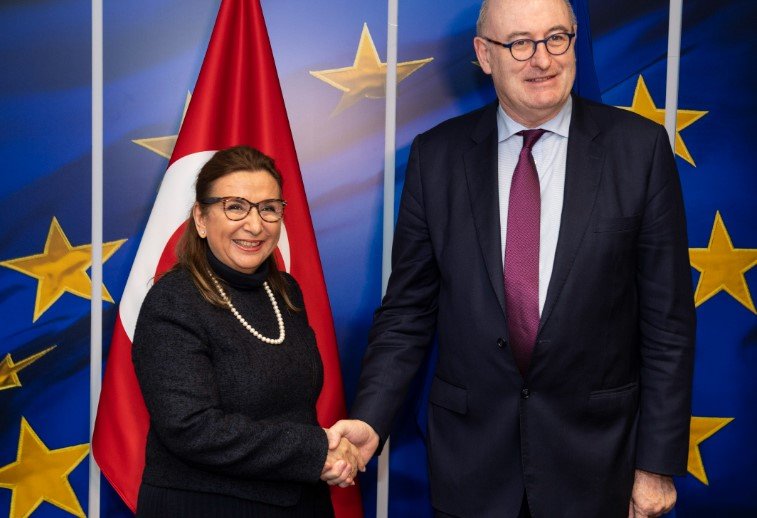Japanese Prime Minister Sanae Takaichi and Jordan’s King Abdullah met in Tokyo on November 11, 2025, to confirm plans for deeper strategic ties in security and economic areas. This agreement aims to boost cooperation amid rising Middle East tensions and global economic shifts, building on their long-standing partnership.
The leaders focused on practical steps to support business growth and cybersecurity. With conflicts involving Israel and Iran adding urgency, Japan pledged financial aid to help Jordan maintain stability in the region.
Background of the Strategic Partnership
Japan and Jordan have built strong relations over decades, marking 70 years of diplomatic ties in 2024. This latest meeting highlights their commitment to a “strategic partnership” that started gaining momentum in recent years.
King Abdullah has visited Japan multiple times, including talks with previous leaders like Shinzo Abe. These interactions have led to increased trade, investment, and educational exchanges. In 2023, Jordan’s Prime Minister hosted Japan’s foreign minister to celebrate their anniversary and discuss defense cooperation.

The partnership fits into Japan’s broader foreign policy goals. Japan aims to secure supply chains and promote peace in key regions. Jordan plays a vital role as a stable force in the Middle East, helping with refugee support and counterterrorism efforts.
Recent global events, such as the ongoing conflicts in Gaza and tensions with Iran, have pushed both nations to strengthen alliances. Japan has ramped up military spending to 1.4 percent of GDP in 2025, targeting 2 percent by 2027, which aligns with enhanced security pacts worldwide.
Key Agreements from the Tokyo Meeting
During the summit, both sides signed deals for loans and grants totaling over 16 billion yen. This aid focuses on economic development and cybersecurity improvements in Jordan.
Japan agreed to provide 15.5 billion yen in loans to support Jordan’s growth projects. Additionally, a 745 million yen grant will supply equipment to bolster digital defenses against cyber threats.
The leaders also set up a public-private committee. This group will help Japanese firms enter Jordan’s market by easing regulations and encouraging investments.
These steps build on past cooperation. For example, Japan has supported Jordan with aid for water management and refugee programs in recent years.
Here are the main elements of the agreements:
- Loans for economic infrastructure to create jobs and boost trade.
- Grants for cybersecurity tools to protect against digital attacks.
- Joint committee to streamline business entry and investment flows.
- Focus on protecting Japanese nationals in the Middle East amid regional unrest.
Economic Impacts and Opportunities
The partnership promises mutual benefits in trade and investment. Japan sees Jordan as a gateway to Middle East markets, while Jordan gains from Japanese technology and capital.
Bilateral trade has grown steadily, with Japan exporting machinery and vehicles, and Jordan sending phosphates and agricultural goods. In 2024, trade volume reached new highs, driven by post-pandemic recovery.
The new committee could lead to projects in renewable energy and tech. Jordan aims to attract foreign investment for its economic reforms, targeting sectors like tourism and manufacturing.
Experts predict this tie-up could add billions to both economies over the next decade. Similar pacts, like Japan’s recent deals with India for 10 trillion yen investments, show the potential for long-term growth.
| Aid Type | Amount (Yen) | Purpose | Expected Impact |
|---|---|---|---|
| Loans | 15.5 billion | Economic growth projects | Job creation and infrastructure development |
| Grants | 745 million | Cybersecurity equipment | Enhanced digital security and reduced cyber risks |
| Total Aid | 16.245 billion | Overall partnership support | Stronger bilateral ties and regional stability |
This table shows how the aid breaks down, highlighting Japan’s focus on practical support.
Analysts note that these moves help Japan diversify away from reliance on China for critical minerals and supply chains. Jordan’s strategic location supports this shift.
Security Cooperation in Focus
Security forms a core part of the deepened ties. Japan thanked Jordan for aiding Japanese citizens during Middle East crises.
The grant for cybersecurity addresses growing threats from state-sponsored hacks. Both nations face risks from global cyber actors, making this cooperation timely.
Broader defense talks included military exchanges. Japan has increased joint exercises with allies like the U.S., Australia, and the Philippines in 2025, signaling a more active role in international security.
King Abdullah discussed regional stability, emphasizing Jordan’s efforts against terrorism. This aligns with Japan’s push for peace in the Indo-Pacific and beyond.
Future Prospects and Global Context
Looking ahead, the partnership could expand into areas like clean energy and talent exchange. Leaders plan to promote people-to-people links, similar to Japan’s initiatives with India for 5 lakh exchanges in five years.
This agreement comes as Japan strengthens global alliances. Recent pacts with the EU and the U.S. focus on free trade and security, countering challenges from China and regional conflicts.
Challenges remain, such as economic pressures from inflation and geopolitical risks. Yet, both nations express optimism for a “new golden chapter” in their relations.
As readers follow these developments, share your thoughts on how such partnerships affect global stability. Comment below or spread the word to spark discussions.
